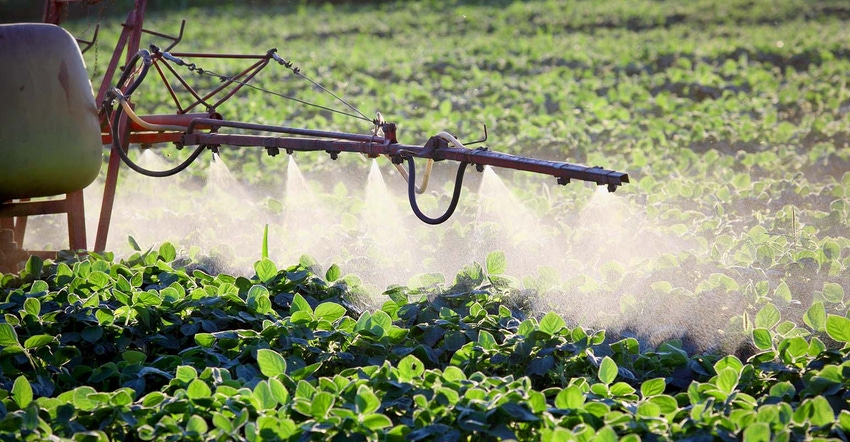
In a raging sea of dicamba-drift complaints, some soybean and cotton growers managed to stay the course and find success with the new formulations in 2017.
Visiting farmers in Illinois, Indiana and Iowa, BASF U.S. Crop Protection vice president Scott Kay says farmers reported "some of the cleanest fields in decades" with Engenia in 2017.
Last year was the first time the new low-volatility formulation was used on dicamba tolerant soybean and cotton acres in the U.S.
"We talked about stewardship, what was the best management practices used and what made for a successful Engenia herbicide application," Kay adds. He says there were four common areas between growers.
Follow application checklist. "They clearly had a plan and were trained on that plan."
Use approved nozzles. Engenia was a change in dicamba formulation. Growers that adopted that change had to adopt a change in technology. The growers finding success used the correct nozzle. BASF gave away 700,000 nozzles over the summer.
Know what grows around you. Farmers understood their growing community. They talked with neighbors to find out what was planted in nearby fields. Then they stuck to the label.
Train in-person. Farmers spoke with BASF representatives or attended training in person to make sure they understood the product and it application process. Many credit the one-on-one conversations to making the use of Engenia on crop acres a success in 2017.
Chad Asmus, BASF Technical Marketing manager, recognizes that while some growers achieved good results with dicamba-tolerant crops this season, other non-dicamba-tolerant farms experienced symptomology that may have come from the improper use of the new technology.
BASF field representatives investigated 787 soybean symptomology claims during the 2017 season; according to Asmus most had no impact on yield. However, in some cases yield may have been affected when terminal growth was inhibited.
So BASF is increasing its efforts to not only better understand what is happening in the fields, but also improve training.
To help more applicators and farmers have a successful spray season, BASF plans to expand the Engenia On Target Application Academy—it's application training program—in 2018. Application materials will be available in both English and Spanish at in-person training sessions and through enhanced mobile applications. He notes that growers can also expect more equipment application incentives involving boom height and sprayer hoods to be added to the nozzle and direction injection program.
In a third party post-season survey of 400 growers, 85% percent plan to use Engenia in 2018 and 83% will recommend the product to a neighbor.
The survey tells Asmus that the company is "doing the right things" and the product is "working well for many people." "It gives us confidence going into 2018 for system that works," he adds.
About the Author(s)
You May Also Like






